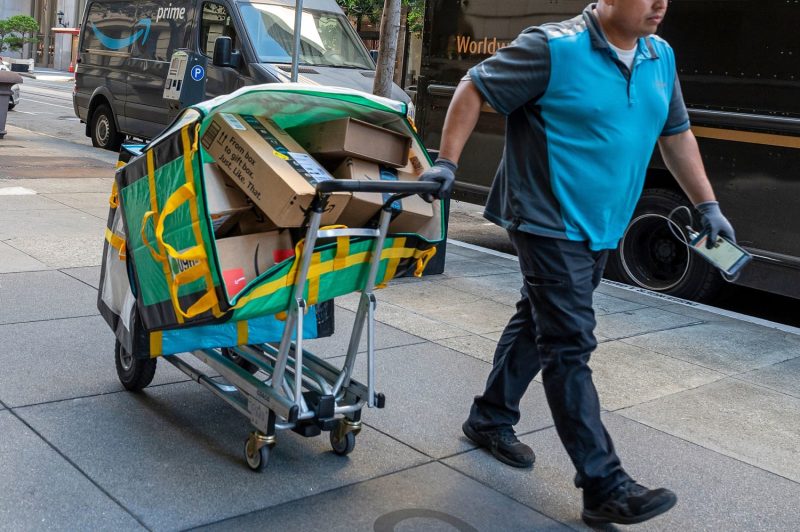Amazon Faces Legal Action for Allegedly Excluding Neighborhoods from Prime Delivery
Amazon, the tech giant and e-commerce powerhouse, is facing legal challenges from the Attorney General of Washington D.C. over allegations of excluding certain neighborhoods from its Prime delivery service. The lawsuit, filed on Tuesday, contends that Amazon intentionally neglected predominantly Black neighborhoods in Washington D.C. from its same-day and next-day Prime delivery options, resulting in disparities in service access and potential violations of consumer protection laws.
The complaint asserts that Amazon’s delivery practices disproportionately impact communities of color and impede access to essential goods and services conveniently available to other neighborhoods. These allegations point towards a systemic issue of systemic discrimination and bias in the company’s operations that need to be addressed and rectified. The lawsuit highlights the need for greater transparency, accountability, and equality in Amazon’s distribution strategies to ensure fair treatment and equitable access for all consumers.
In response to the allegations, Amazon spokesperson commented that the company’s delivery service aims to provide fast and reliable services to all customers, regardless of their location. They mentioned that Amazon offers a range of delivery options, including same-day and next-day deliveries, based on various factors such as proximity to fulfillment centers, product availability, and order timing. Amazon also stated that they do not target or avoid specific neighborhoods based on demographic characteristics, emphasizing their commitment to serving all customers equally.
However, the legal battle between Amazon and the D.C. Attorney General sheds light on broader issues concerning corporate responsibility, diversity, and social justice in the tech industry. It raises questions about the ethical implications of algorithms and data-driven decision-making processes that may perpetuate discrimination and inequality. Furthermore, the lawsuit underscores the importance of enforcing anti-discrimination laws and safeguarding consumer rights in the ever-evolving landscape of e-commerce and digital services.
The outcome of this legal dispute will likely have significant implications for Amazon’s delivery practices not only in Washington D.C. but also across other regions and communities. Regardless of the verdict, this case serves as a wake-up call for tech companies and online retailers to prioritize inclusivity, fairness, and social impact in their business operations. In an increasingly digital and interconnected world, it is essential for companies like Amazon to uphold ethical standards, promote diversity, and actively combat biases that could harm marginalized populations.
As the legal proceedings unfold and public scrutiny intensifies, Amazon faces a pivotal moment to demonstrate its commitment to diversity, equity, and inclusion while navigating the complex intersection of technology, commerce, and social justice. The outcome of this case will undoubtedly leave a lasting impact on the company’s reputation, business practices, and the broader conversation about corporate accountability in the digital age.

